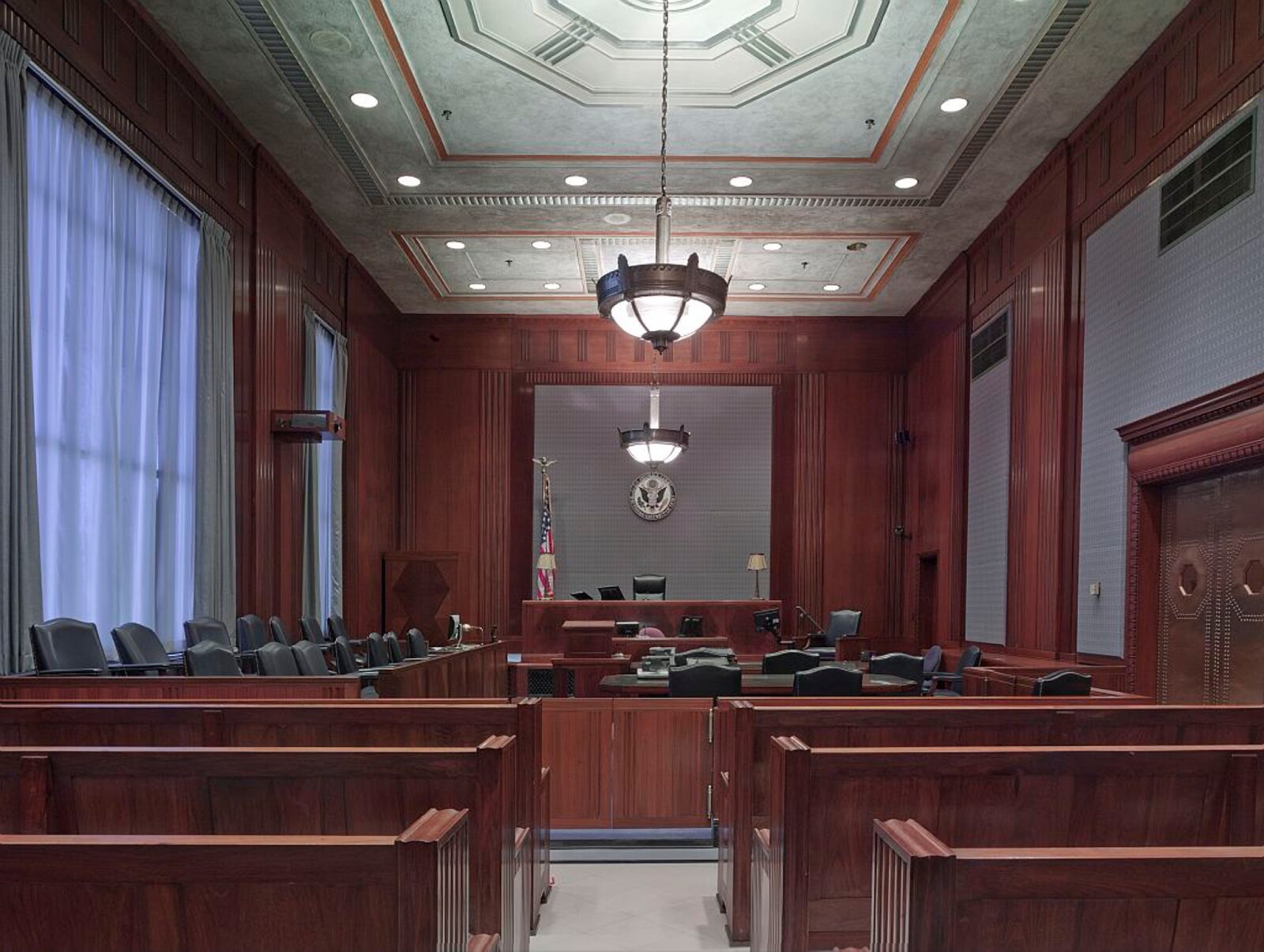Court Denies Motion for Reconsideration in Camp Lejeune Water Litigation
In a significant development, the court has denied a motion for reconsideration in the ongoing Camp Lejeune Water Litigation.

The case, encompassing 93,000 claims tied to water exposure from 1953-1987, saw Attorney Roy T. Willey, IV, contest the court's appointment of a leadership group.
This article examines this pivotal decision, its potential effects on the litigation's path, and its implications for victims seeking justice under the Camp Lejeune Justice Act.
Understanding the Camp Lejeune Water Litigation
In our ongoing effort to understand the complexity of the Camp Lejeune water litigation, we need to delve into the details of the Camp Lejeune Justice Act, the appointment of a leadership group, and the court's recent denial of a motion for reconsideration.
The Justice Act, enacted due to the health consequences stemming from contaminated water exposure, introduces legal implications for those affected between 1953 and 1987.
A leadership group was appointed to represent the plaintiffs, an action contested unsuccessfully by attorney Roy T. Willey, IV.
The court's denial of Willey's motion for reconsideration reaffirms its confidence in the appointed leadership.
This intricate legal process, underpinned by significant health implications, underscores the gravitas of the Camp Lejeune water litigation.
The Role of Camp Lejeune Justice Act in the Litigation
The Camp Lejeune Justice Act, pivotal in the ongoing litigation, has provided a federal avenue for over 93,000 claimants who suffered due to exposure to contaminated water, and it continues to shape the judicial approach towards these cases. Through its unique provisions, the Act forms the backbone of the litigation, defining the rights of the victims and setting the parameters within which the court operates.
| Role of Camp Lejeune Justice Act | Impact on Victims | Judicial Approach |
|---|---|---|
| Federal avenue for claims | Empowerment | Case-specific |
| Burden of proof defined | Clarification of rights | Guided by the Act |
| Exclusive jurisdiction and venue | Accessibility to justice | Focused on Eastern District of NC |
| Exhaustion of administrative remedies | Structured claim process | Administrative review precedent |
| Prohibition of punitive damages | Limits on compensation | Restrained damage awards |
Thus, the Act's role is substantial in shaping the Camp Lejeune Water Litigation and its impact on victims.
Formation of the Leadership Group in the Litigation
Following the appointment on July 19, 2023, the formation of the leadership group has been instrumental in representing the plaintiffs' interests in the Camp Lejeune Water Litigation.
The importance of leadership group representation is underscored by the complexity and volume of the case, demanding expertise and efficient management. The group, through its diverse experience, has shown adept handling of the litigation dynamics, effectively voicing the plaintiffs' concerns.
However, the leadership group faces potential challenges, including the vast number of claims and the intricacies of the Camp Lejeune Justice Act.
Despite these obstacles, the group's commitment to justice remains unwavering, demonstrating the significance of their role in navigating the complicated terrain of the litigation process.
Their representation is crucial in driving the case towards a resolution.
The Controversy Surrounding the Appointment of the Leadership Group
Despite the court's confidence in its selection, Roy T. Willey, IV's challenge to the appointment of the leadership group has stirred significant controversy within the Camp Lejeune Water Litigation proceedings.
The controversy surrounding the appointment has incited debate over the court's authority and the qualifications of the selected leadership. Willey's argument that he should have been included due to his role in a related case has been met with counterarguments emphasizing the court's discretion and the diverse experience of the appointed group.
The court's denial of Willey's motion for reconsideration has further implications for litigation, ensuring the court's decision stands firm. The denial solidifies the current leadership, allowing the litigation to progress under their guidance, with potential impact on the dynamics and outcomes of the Camp Lejeune cases.
Details on the Motion for Reconsideration
Willey's motion for reconsideration was denied by the court, and this decision holds implications for the ongoing Camp Lejeune Water Litigation.
Understanding the arguments in the motion for reconsideration, Willey contended that the court lacked authority to appoint the leadership group and that his role in a related case warranted inclusion. However, the court found these arguments unpersuasive, maintaining its original order.
This refusal underscores the court's commitment to its established hierarchy, potentially dissuading similar challenges in the future. Implications of the court's denial for future litigation strategies could be profound; it reinforces the notion that the court's decisions regarding case management are final and indisputable, thereby setting a precedent for other multifaceted litigations.
The Court’s Verdict on the Motion for Reconsideration
The court's verdict on the motion for reconsideration, denying Willey's request, represents a pivotal moment in the ongoing Camp Lejeune Water Litigation. The court's decision firmly maintains the established leadership group, dismissing Willey's arguments as unpersuasive. This confirmation of the court's authority and autonomy in choosing the leadership group hints at the implications of denial for Willey and potentially other attorneys seeking reconsideration.
| Court's Decision | Implications of Denial | Ongoing Impact |
|---|---|---|
| Upheld the leadership group | Willey's arguments dismissed | Maintains court's autonomy |
| Affirmed court's authority | Limits reconsideration bids | Reinforces leadership structure |
| Dismissed Willey's request | Willey excluded from leadership | Ensures effective case management |
This verdict sets a strong precedent for case management and underscores the court's commitment to effectively handle the Camp Lejeune Water Litigation.
The Scale of CLJA Cases and Court’s Management Approach
In our review of the CLJA cases, we have noted the impressive scale of these litigations and the court's strategic approach in managing them. With approximately 93,000 administrative claims and 1,113 civil actions, the case volume management has required an efficient court procedure.
The court, utilizing a four-judge panel, has adeptly handled this immense workload in addition to their regular caseload. A significant strategy employed was the creation of a leadership group, appointed on a one-year term basis. This group was tasked with coordinating the cases, contributing to a streamlined case management.
The court's refusal of Roy T. Willey, IV's motion for reconsideration further underscores its commitment to uphold established procedures, ensuring the smooth progression of these extensive litigations.
The Process of Selecting the Leadership and Their Responsibilities
Through a rigorous selection process, the court appointed a leadership group for the Camp Lejeune Water Litigation, and delineated their responsibilities, ensuring effective management and coordination of the high volume of CLJA cases.
The selection process for leadership positions was comprehensive, and the responsibilities were carefully outlined to ensure an orderly conduct of the litigation.
However, this process attracted controversy when attorney Roy T. Willey IV filed for reconsideration, arguing that the court lacked authority to appoint the leadership group and that he should be included due to his involvement in a related case.
Despite the controversy, the court upheld its decision, maintaining that the leadership group's appointment was essential to handle the significant volume of cases efficiently.
The Implications of the Court’s Denial for the Litigation
With this refusal to reconsider, there is a clear indication that the court upholds its authority in the appointment of the litigation leadership group. This decision will undeniably impact the future direction of the Camp Lejeune Water Litigation, with over 1,113 CLJA civil actions pending.
The implications are threefold:
- The court's decision reinforces its jurisdictional authority, underscoring its role in managing complex litigations.
- The litigation leadership group's stability is ensured, facilitating an efficient and coordinated approach to handle the massive volume of cases.
- The refusal may pose challenges for attorneys like Willey, who may feel sidelined but are expected to respect the court's decision and contribute constructively without disrupting the litigation process.
The ruling thus underscores the court's commitment to uphold procedural integrity while effectively managing the litigation.
The Impact of the Litigation on Camp Lejeune Victims
Although the litigation process has been marked by complexities, it can potentially offer a legal avenue for Camp Lejeune victims to seek redress for the harm suffered due to the water contamination.
The Camp Lejeune Justice Act enables victims to file for compensation, addressing the long term health effects associated with the water contamination. The Act's exclusive jurisdiction and venue provide a dedicated legal arena for these cases.
Despite the volume of claims and the complex management of these cases, the court has organized a leadership group to streamline the process. This, in turn, could expedite the compensation for victims, thereby offering a glimmer of hope amid the daunting legal proceedings.
The litigation, despite its challenges, serves as a crucial step towards justice for the victims.
Conclusion
The court's denial of the reconsideration motion in the Camp Lejeune Water Litigation ratifies the previous decision to appoint a leadership group, thereby maintaining the course of ongoing litigation.
This decision holds significant implications for the management of approximately 93,000 claims and the quest for justice of countless victims.
As the litigation continues under the Camp Lejeune Justice Act, it is anticipated that this ruling may significantly influence the trajectory and outcome of these crucial proceedings.




